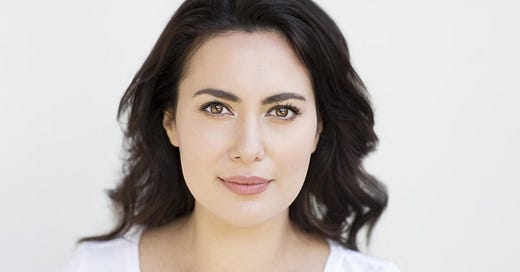Yasmine Akram: “I don't need to earn my Pakistani badge”
The actress on reckoning with her heritage and achieving her dream of whiteness
Hi, welcome to the first Mixed Messages of 2022! This week, I’m speaking to Yasmine Akram, an Irish actor and comedian of mixed Pakistani and white heritage. Yasmine, who has starred in Sherlock, Unforgotten and Lovesick, hasn’t always embraced her Pakistani heritage – now, she’s tired of waiting for people to wrap their minds aroun…




